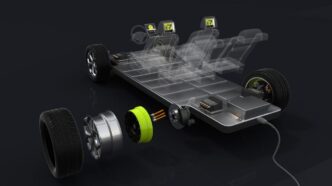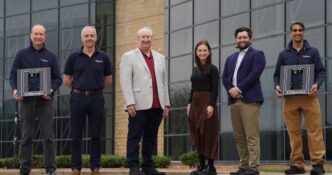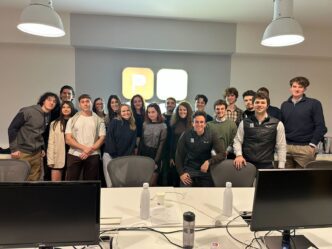Conifer, a hardware startup launched by former engineers from Lucid Motors and Apple’s electric vehicle team, just pulled in $20 million in seed funding to shake up how electric motors are built and deployed. The California-based company is ditching rare earth elements in favor of more abundant ferrite magnets—an innovation that promises lower costs, reduced supply chain risks, and easier production scaling.
This fresh approach to motor design comes at a time when global trade tensions are creating uncertainty around material sourcing. Conifer’s founders believe that redesigning electric hub motors from the ground up, especially the stator, is long overdue. According to the team, their compact and efficient stator delivers more power than existing options at half the size.
Led by True Ventures, the seed round also saw participation from MaC Venture Capital, MFV Partners, and other deep tech-focused investors. Rohit Sharma of True Ventures is also joining the company’s board, signaling strong conviction in Conifer’s roadmap.
While many startups focus on battery tech, Conifer is zeroing in on the powertrain—the very part of electric vehicles that hasn’t seen nearly as much innovation or capital. Co-founder Ankit Somani, who’s a self-proclaimed EV enthusiast, said his frustration with the lack of attention to motor design pushed him to launch the company.
Instead of chasing complex new vehicle designs, Conifer is building what it calls a “drop-in” electric hub motor. That means vehicle manufacturers can easily swap out existing motors without redesigning their platforms. The first applications will target small mobility vehicles—anything with two, three, or four wheels—including off-road and on-road types.
But interest isn’t limited to micromobility. The startup has already attracted attention from makers of lawn equipment, tractors, and even HVAC systems. With a number of global clients already lined up, Conifer expects to begin shipping production units by the end of the year.
A major part of the company’s strategy also lies in how it manufactures. By avoiding rare earths, Conifer can source materials more locally. Its long-term vision includes launching highly automated “microfactories” that can flexibly build motors of varying sizes on the same production line. This modular approach could make it easier to expand globally and respond to regional demands without the overhead of massive centralized facilities.
This model draws comparisons to now-defunct Arrival, which once proposed a similar idea for electric vans but failed to scale. Conifer, however, believes its simpler hardware reduces that risk significantly. Somani emphasized that the team will automate selectively—starting with critical subsystems like the stator—rather than trying to automate everything from day one.
Still, for all the behind-the-scenes innovation, Conifer’s sales pitch remains refreshingly simple: swap your old hub motor with theirs, and enjoy an instant 10% boost in vehicle range. No redesigns, no overhauls—just a better motor in the same form factor.













